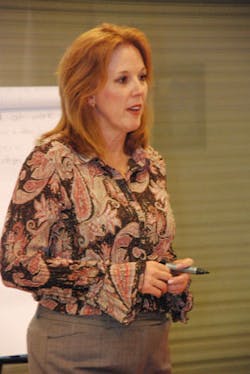The aerospace/aviation industry is built on technical proficiency, knowledge, and experience. Most any job or position in aerospace/aviation requires technical precision and understanding. Maintenance professionals in the U.S. must, at a minimum, maintain certifications from the FAA and ratings on various airframes based on knowledge of the intricate workings of an aircraft and all of its parts. As we all know, pilots are also regulated by the FAA under the Federal Aviation Regulations. Piloting privileges are specific to aircraft categories and within those categories pilots must hold class ratings and their technical skills/knowledge by continuous recurrent training. This is all a given for those who want to work in this industry — technical, technical, technical.
However, what happens when you have the best pilot in the world with type ratings on multiple aircraft and thousands of hours of flight time, but he does not interact well with your clients/passengers or more importantly, with internal team mates? What about the maintenance technician who knows the inside/out of an aircraft better than the back of his hand, but he does not work well with the other people in the department that he has to work with day in and day out?
What is industry saying?
ServiceElements has worked with thousands of aviation professionals over the past 15 years from different job positions within the industry: pilots, maintenance technicians, line service and customer service personnel, flight attendants, directors/managers/supervisors, and executive leadership. When asked what some of the daily challenges are in their jobs, 90 percent of the problems they encounter involve people issues/human interaction/communication disconnects. Technical know-how and training does not usually present a problem for most aviation professionals in their day-to-day interactions. The technical proficiency has been the cornerstone of the aerospace/aviation industry’s culture.
Some of the top recurring challenges we hear:
- Creating cohesion and unity among varied skill levels and personalities
- Getting everyone on the shift to work as safely as they can and perform good technically and with good customer service
- Not knowing how to motivate and/or hold others accountable
- Keeping consistent, accurate, and positive communication among and within all shifts
- Being a constant great example for others on the team
- Facilitating a healthy and pleasant work environment
- Managing time
- Getting or earning respect from those who have been there longer
- Lacking specific direction, guidance, and support from upper management
- Being more assertive
- Resolving employee relationship issues and conflicts
- Leading/treating all team members fairly and equally
- Trying to stay consistent on training
- Ability to delegate responsibilities
- Managing and dealing with several personality types as well as various departments
- Providing thorough and detailed information on the work at hand
- Dealing with upset customers
- Poor planning and project management
These challenges and many others are common in daily work and are all related to human interaction and people issues. This is what we spend most of our day dealing with amongst our team, our customers, our leadership, and/or our direct reports on the shop floor. The ability to deal with these challenges requires certain core strengths that involve our ability to communicate and to understand ourselves as well as those people that we interact with throughout the day — whether they are team members, vendors, customers, bosses, or the people that we manage. Some people are born with a natural ability to interact with others to a certain extent, just as some people are born with talents that involve physical or mental abilities.
The best day was when I worked on the aircraft and didn't talk to anyone
In aircraft maintenance, we have heard from many maintenance technicians that it used to be the best day for an aircraft technician professional on the shop or hangar floor when they were able to work on the aircraft all day and did not really have to talk to anyone. After all (we have heard), “I didn’t become an aircraft technician or mechanic because I wanted to communicate!”
Today, communication is a “core” strength for aviation technicians, or for any aviation professional for that matter. We live and work in a very high tech, complex, fast paced, and dangerous world. The importance of communication has been elevated (not our choice!) even further. “Core” training with regard to getting our bodies into good physical condition is the balanced development of the deep and superficial muscles that stabilize, align, and move the trunk of the body, especially the abdominals and muscles of the back. This core of our physical body is essential to our movement and well-being.
The same is true in training for business and professional development that involves human interaction. What has traditionally been referred to as “soft skills” training and includes proficiencies such as communication skills, conflict resolution and negotiation, personal effectiveness, creative problem solving, strategic thinking, team building, and leadership skills to name a few is now being referred to as “core skills” training. In an industry such as aviation, there is a heavy emphasis on technical training. Technical training is required of pilots, maintenance professionals, flight attendants, air traffic controllers, line service professionals, etc. And technical training is very important for all of these professionals to be able to do their jobs at a high level of proficiency.
The times they are a’changin
The aircraft and systems are becoming more and more digital. This means the aircraft technicians need to be able to analyze data and communicate their findings and results of their analyses. Technology is moving us further and further in this direction. This requires use of “core skills” or communication with team members, supervisors, and customers.
Unfortunately, “core skills” training sometimes gets passed over as not being as important to a person’s business and professional well-being. Organizations’ oops files (the cases where a customer has to be compensated to make up for a mistake) then continue to grow, and individuals suffer as a result if communication skills, service skills, leadership skills, or teamwork skills are lacking. Morale suffers and the cycle becomes a bigger problem that continues to grow.
Organizations (and business professionals) that are at the cutting edge and most successful at what they do, understand that people skills development — understanding better how to communicate with team members and customers; being able to resolve conflicts without involving supervisors; finding ways to team build and lead others; and many other “core skills” are very important to reaching that next level and rising above the competition. Many times, the “oops” file cases will start to shrivel or even go away and optimum development can be achieved when team members are encouraged (or required) to take service/communication/people or “core skills” training.
For maintenance technicians, although many things may be outside their control in this fast-paced and changing environment whether it be customer requirements, company requirements, or changing technology, there are untold opportunities for the future aircraft technician/mechanic. The first step in taking advantage of these opportunities would be to recognize the vacuum and the challenge. The second step would be to increase attention and focus on professional and core skills development. Look into the associations and take advantage of professional training programs that organizations like NBAA, NATA, and many others have to offer. While many of their programs are required (and essential) technical training, the associations have also expanded on their other professional development programs. Or, call ServiceElements — we have over 13 years of experience in this industry helping professionals enhance their value to their respective aircraft users, customers, and organizations. Needless to say, ultimately the personal satisfaction of the ability to do your job better and to communicate better provides for a much more stress free and happy work-life balance.
Christine Hill is the Executive Vice President & Co-Founder of ServiceElements. She helped build the company into what it is today through the various phases of administrative duties, curriculum development, facilitation of workshops in the US and abroad, and training of facilitators. Over the past 15 years, Christine has worked with thousands of aerospace/aviation professionals in a wide variety of job functions toward personal and professional development. She has also been instrumental in the development and facilitation of ServiceElements organizational development programs both in the U.S. and abroad. For more information visit www.ServiceElements.com.About the Author

Christine Hill
Christine Hill, executive vice president and co-founder of ServiceElements, has been in teaching, facilitating, and coaching for 30+ years. She has a Master’s in psychology/education from Northern Arizona University and is passionate about helping organizations, teams, and individuals with development of human interaction skills.
